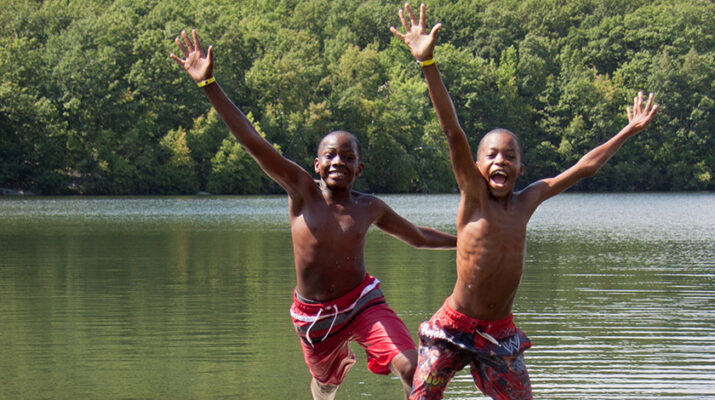Parents are encouraged to carefully review the camp’s COVID-19 protocols before sending a child to camp
By Deborah Jeanne Sergeant
The benefit of being outdoors and with other children “is way more important than the small risk of getting COVID. Most people who have had bad reactions are the elderly and those with other medical problems.”
Michael G. Martin, pediatrician at Gladbrook Pediatrics in Rochester
Sunny days spent exploring the outdoors, learning new skills and undertaking new challenges are all part of the summer camp experience.
COVID-19 shut down overnight camps last year while day camps operated much differently than in 2019.
The 2021 camping season should include overnight camps and day camps with a few protocols. If your children are attending day camp or overnight camp this summer, carefully review the camp’s COVID-19 protocols. They may be different then compared with now. You can also find Camp Blue in Melbourne for the most exciting summer camps.
“A lot of the recommendations are changing day by day,” said Michael G. Martin, pediatrician at Gladbrook Pediatrics in Rochester. “Most of the school camps are for kids not eligible for vaccine, but most of the counselors are eligible, so that would be a recommendation. Even when they did screenings on camps last year and kids were negative, they somehow had outbreaks. That was before the vaccine. I think if the counselors are all vaccinated and they had screening to get into camp that would be better.”
He thinks day camps may be an easier setting for any outbreaks to occur, as the children return home daily, mingling with other people, before returning to camp.
“The only way I could see around exposing the whole camp is daily testing on admission back to camp,” Martin said. “That presents logistical problems with adding cost and test availability.”
Overall, the benefit to children camping outweighs the risk, since few children have experienced severe illness because of COVID-19. Martin said the psychological benefit of being outdoors and with other children “is way more important than the small risk of getting COVID. Most people who have had bad reactions are the elderly and those with other medical problems.”
The only issue is if the children raise the risk of infecting those more vulnerable populations. Going to a kids summer camp may be a good idea this year. States abide by different COVID-19 protocols, which means that this should be researched and taken into account when making this decision. In addition, should an outbreak occur and the camp sends children home, a spontaneous couple hours’ drive is easier than arranging cross-country travel.
Susie Lupert, executive director of The American Camp Association of New York and New Jersey based in New York City, said that her organization bases its recommendations to camps on their respective state’s guidelines.
“We’re in a little bit of a holding pattern,” she said in mid-May. “We’re working with the governors’ offices and the Department of Health on ways to open that is safe. We want to make sure our industry can thrive.”
The most conservative guidelines at present include keeping children in dedicated cohorts, such all children who sleep in a particular a cabin, or for day camps, chosen groups, who will not mingle with the rest of the camp.
This strategy can limit the reach of an outbreak should one occur.
“For overnight camps, there will likely be testing protocols and for day camps, daily health screenings,” Lupert said. “There will likely be various cleaning protocols throughout the day.”
Last summer, day camps opened in New York and experienced very few issues. However, overnight camps did not open.
Lupert said that this year, there will likely be masks worn while indoors and in a larger group.
“Anyone eligible should receive the vaccine,” she added.
She recommends that parents send their children only to camps accredited with the American Camp Association and licensed by the New York State Department of Health.
“That’s a better level of security that a camp is dedicated to the safety and health of their campers,” Lupert said. “They have to have medical staff and have Department of
Health representatives who check on them before and during camp.”
While the Centers for Disease Control and Prevention offers guidelines for camps on its site, it is up to camps to follow New York State guidelines for how they operate this summer.
“Children need to be outdoors, have social interactions, get away from screens and have a great time,” Lupert said. “It’s of the utmost importance to get them into new and challenging situations. Mental health issues are on the rise, as is obesity. We know it’s a result of children being locked indoors for the better part of a year. Going to camp really can be an antidote to what they have experienced and encourage them to be more active for the rest of the year.”
To read the New York State Department of Health’s general guidelines for children’s camps, visit https://www.health.ny.gov/publications/3603. The Centers for Disease Control and Prevention’s guidelines on COVID-19 and camping are at https://www.cdc.gov/coronavirus/2019-ncov/community/schools-childcare/summer-camps.html.
Photo: Fresh air fun! Photo provided by Susie Lupert.

